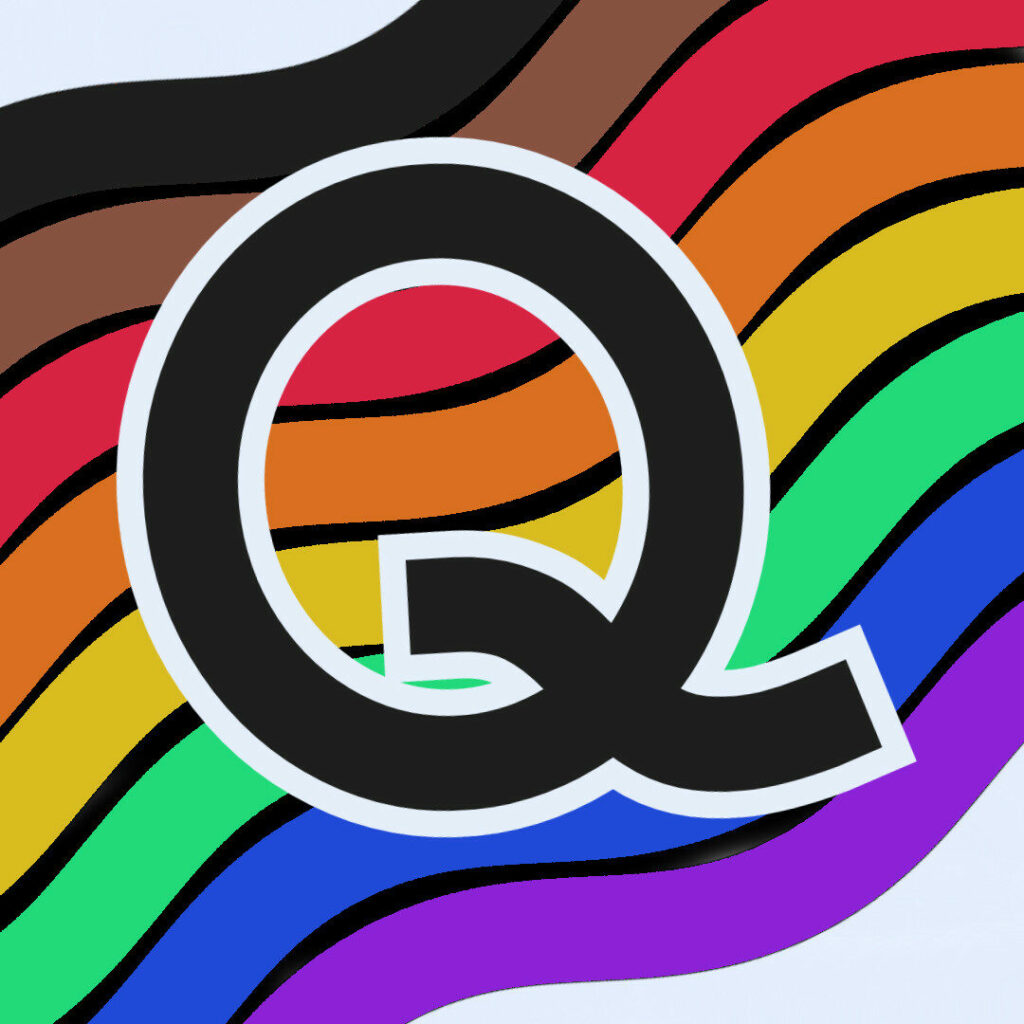Who Needs Rights Anyway? A Breakdown of the Supreme(ly Broken) Court

Table of Contents
I am furious, sad, exhausted, and absolutely disgusted by the all-out war being waged against LGBTQ+ people in the United States. For the past year and a half, you may have noticed that this blog has been silent, and this is the reason: I just couldn’t. I couldn’t handle the threats being thrown in the faces of LGBTQ+ people, LGBTQ+ children and teens especially. I couldn’t speak on the anti-intellectual attacks being brought in libraries across this country, attacking the very existence of queer and trans literature. I couldn’t allow myself to spend time on these because the void threatened to swallow me whole. I talk a big talk, but I’m not a fighter; and when things became dire, I mimicked a rabbit and scampered away to protect myself.
There’s no safety in my rabbit nest. My health, mentally and physically, isn’t protected by me staying silent - as a matter of fact, it’s likely significantly worse. Bottling it in instead of fighting helps no one; not me, not those I want to protect. So fuck that, let’s kick down some doors and scream.
THE SUPREME COURT vs. EVERYONE WHO ISN’T A WASP#
AFFIRMATIVE ACTION#
This week has been a watershed moment for the Court, showing their true colors, so long as those colors are beige. Thursday, they effectively banned affirmative action, a program with a proven track record of increasing the likelihood of Black and brown college applicants getting accepted to their chosen school. It’s a stark reversal from the promises of the Civil Rights Act of 1964, an assurance that not only would Black and brown people not be negatively targeted based on race, but that the government would institute policies to level the playing field and reduce the harms done over the centuries of enslavement and segregation.
The court’s decision is reprehensible. To quote Justice Ketanji Brown Jackson:
Our country has never been colorblind. Given the lengthy history of state-sponsored race-based preferences in America, to say that anyone is now victimized if a college considers whether that legacy of discrimination has unequally advantaged its applicants fails to acknowledge the well-documented ‘intergenerational transmission of inequality’ that still plagues our citizenry.
I encourage you to read both Justice Jackson and Justice Sotomayor’s dissents to truly grasp the importance of affirmative action for college applications.
Diversity doesn’t exist in a vacuum. This is bound to affect all of our Black and brown students, but if history tells us anything, it’s bound to affect those with multiple minority identities the hardest. Those who are racially diverse and LGBTQ+ (particularly trans kids) are certain to face more discrimination in the college admissions process due to this decision.
STUDENT LOAN REPAYMENT#
Speaking of disgusting decisions made by the Court, let’s talk about how they’ve abandoned former college students aged Gen X and younger to languish in debt for the rest of our lives. Just like most people, I went to college in order to get a career that could provide for myself and my family. Of course I was fed the typical lines of the 90s and 2000s - I should follow my heart when it came to what I study, a Bachelor’s degree was a certain way to ensure success in the marketplace, and the biggest lie of all, don’t worry about taking out student loans because you’ll be able to repay them once you have that nice cushy job. I signed my first student loan paperwork at 17 years old. Yep, I signed a binding contract with the federal government promising them I’d pay back every cent plus interest when I WASN’T EVEN AN ADULT YET. Yes, my parents had to cosign, but they weren’t highly educated (particularly not in finance), and they believed the hype just like I did.
There was a time where just getting a college degree was a guarantee of financial comfort, predominantly because very few people in the country pursued education above high school. As the Bachelor’s degree became an acceptable requirement for entry level office jobs in the late 2000s, a replacement for a high school diploma, they no longer promised economic freedom. While our wages may indeed be higher than those of a high school grad, wealth accumulation has dropped significantly, partially due to the high costs of student loan debt. Our hourly wages (or salaries, if we’re lucky) are frequently higher than high school grads, but our actual net income is functionally the same.
So we have millions of college grads who probably don’t have a career in their chosen field, who are being swallowed by debt owed to the federal government, often borrowed because of cultural promises that could not actually be attained. But we have millions more who are not college grads who also have student loan debt. 40% of all college students drop out at some point, with many of them never completing a degree. And of course, this disproportionately affects minorities - Black students are almost 34% more likely to drop out and disabled students are almost 60% more likely, only 25% of LGB women finish their degree, and transgender students are also much more likely to leave college early (data is much less available on transgender university outcomes than others, but work is being done to close that data gap). People with some college and no degree still have to pay back their student loans, but without the benefit of the increased income. Add to this the fact that racism, sexism, homophobia, transphobia, and ableism all contribute to income inequality across all educational levels, and it’s obvious that minority groups will be the most affected by continued student loan debt.
The Court’s decision to not allow some student debt relief is unconscionable, as it will only serve to push those who are struggling underwater, particularly minority groups. We should not be forced to bear the weight of promises broken by the inaction of our government, especially when the loss of our student loan payments during the early years of the COVID-19 pandemic didn’t topple the economy.
On a librarian side note - most librarians (public, school, academic, and special) have Master’s degrees. Library school is one of the only Master’s programs that does not offer graduate assistantships to pay for the program, so almost all of us had to take out additional student loans to become librarians. In my Midwestern state, in the capital city, public librarians start at $40k a year salary. Academic librarians make more on average, school librarians may make less, but we are all drowning in debt because we decided our skills would be best used serving you and your information needs. I hear some of you saying “but Ms. Librarian, what about the PSLF?” Public Service Loan Forgiveness still requires ten years of payment and full-time employment. Income-based payments are still a struggle when you make above the federal poverty line but below the true cost of living. Additionally, many librarians struggle to get full-time employment - this could be because library systems have limited positions and budgets, or because librarianship is extremely competitive (trying to get a full-time job in a city that has a library school can be nearly impossible), or because (librarianship being a low-earning job) they choose to work part-time to care for dependents. The PSLF is technically there, and does provide relief to some librarians, but it is not a cure-all. This additional relief could have been life-changing for librarians across the country.
BUSINESSES CAN REFUSE SERVICE#
This one’s the hardest for me to write. I’ve been sitting on my thoughts about this one for days, because it’s difficult to put into words how ridiculous this ruling is. People can now refuse service to LGBTQ+ people if the business sells items of creative speech. What is creative speech? Beats me, because the Court didn’t actually define it. The lack of definition means that any individualized services could easily not provide services to LGBTQ+ people, and provides precedent to potentially deny services to any protected class.
Obviously this is infuriating on many levels. The Court allowing discrimination on the basis of free speech is completely bonkers, and opens the doors to a cascade of lawsuits. But the thing that sticks out to me is that this case was based on a complete hypothetical - when Lorie Smith filed her suit, she had not even opened her wedding website business, and certainly had not been asked to create a gay wedding site. Instead of following the typical pattern of the law, she sued Colorado because there was a small possibility that she could be found to discriminate against queer people if she opened the business at all. I also can’t ignore that she is from the same town as the cake guy who brought a similar suit to the court last decade, and she used the same legal team. The only difference is her case chose to use the language of free speech instead of freedom of religion.
As Justice Sotomayor wrote in her dissent (joined by Justices Kagan and Jackson), “Today, the Court, for the first time in its history, grants a business open to the public a constitutional right to refuse to serve members of a protected class…the immediate, symbolic effect of the decision is to mark gays and lesbians for second-class status.” Businesses nationwide that create individualized products can now deny service to LGBTQ+ people because they don’t agree with the speech, but it’s astoundingly clear that this decision is a wedge that intentionally gives people the ability to discriminate against any protected class.
TAKEAWAY#
I wish I could say that there was a clear path forward with any of this, but I can’t. The only way out is through, so we need to keep living in this world and keep fighting the injustices, but it’s going to be hard. I can recommend that everyone join with local organizations striving to provide equal education, equal access, and debt relief. Investigate ways that you can fight back, no matter how large or small the effort. The only reason we had rights that they could strip away are because people fought for them in the first place. If we just sit and let things roll back, no one is going to make it right. We have to engage.
Photo credit and description: Photo of the sun setting on the Supreme Court. Photo by Ian Hutchinson on Unsplash
